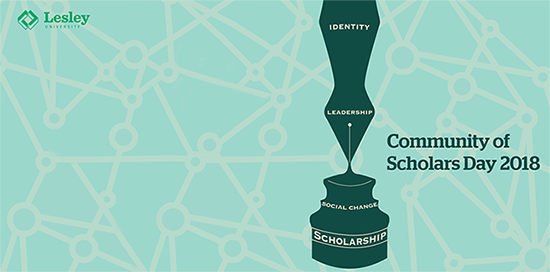Abstract
In this session, the authors will share a shift in an understanding of their role. This has led to an emerging model of cascading leadership, in which the leadership process can be developed and passed on from course instructor to graduate students—and ultimately, to the students they teach. Like the passing of the baton from one runner to the next, faculty who are aware of their own expanded leadership roles become better able to empower tomorrow’s teacher and student leaders.
Their work is based on the required, 3-credit course redesigned and taught by the authors, Perspectives of Literacy, Teaching, and Learning. An underlying goal of this foundational course is to create literacy leaders who use theory to frame their pedagogical teaching, learning, and leadership. The design of the course itself translated learning and literacy theories into practices. Thus, it allowed the graduate students to dive deeply into a range of literacy and learning theories to develop their own lens through which to analyze, reflect on the design of pedagogy, and implement innovative theory-based practices. This multi-theoretical perspective encouraged teachers to adjust their instruction and improve outcomes for K-12 students, especially those who fall within the achievement gap. Through their instructional leadership, they will, in turn, develop students who can become tomorrow’s leaders, able to read critically, think deeply, and make informed decisions necessary for today’s complex world.
The intended audience for this session are graduate and undergraduate faculty whose courses focus on all aspects of literacy development. We will demonstrate how, as instructional leaders, we created an interactive, culturally-responsive, and multimedia course examining the different lenses that frame literacy instruction. Foundational theories, such as, behavioral, sociocultural, cognitive, affective, critical, and physiological formed the basis for generating innovative ideas how best to ensure their students can develop critical literacy skills. Understanding foundational and emerging theories (e.g., Third Space and Neuroscience) can ensure the development of effective leaders in and outside of schools of the future. Our presentation will be interactive, aligning to the theories and principles we use in the course.
Start Date
28-3-2018 3:10 PM
End Date
28-3-2018 4:00 PM
Presentation Type
Paper
Disciplines
Other Teacher Education and Professional Development | Scholarship of Teaching and Learning
Creative Commons License

This work is licensed under a Creative Commons Attribution-Noncommercial-No Derivative Works 4.0 License.
Full Text of Presentation
wf_yes
Included in
Other Teacher Education and Professional Development Commons, Scholarship of Teaching and Learning Commons
Passing the Baton to Future Leaders: Faculty to Teacher Leaders to Students
U-Hall 3-087
In this session, the authors will share a shift in an understanding of their role. This has led to an emerging model of cascading leadership, in which the leadership process can be developed and passed on from course instructor to graduate students—and ultimately, to the students they teach. Like the passing of the baton from one runner to the next, faculty who are aware of their own expanded leadership roles become better able to empower tomorrow’s teacher and student leaders.
Their work is based on the required, 3-credit course redesigned and taught by the authors, Perspectives of Literacy, Teaching, and Learning. An underlying goal of this foundational course is to create literacy leaders who use theory to frame their pedagogical teaching, learning, and leadership. The design of the course itself translated learning and literacy theories into practices. Thus, it allowed the graduate students to dive deeply into a range of literacy and learning theories to develop their own lens through which to analyze, reflect on the design of pedagogy, and implement innovative theory-based practices. This multi-theoretical perspective encouraged teachers to adjust their instruction and improve outcomes for K-12 students, especially those who fall within the achievement gap. Through their instructional leadership, they will, in turn, develop students who can become tomorrow’s leaders, able to read critically, think deeply, and make informed decisions necessary for today’s complex world.
The intended audience for this session are graduate and undergraduate faculty whose courses focus on all aspects of literacy development. We will demonstrate how, as instructional leaders, we created an interactive, culturally-responsive, and multimedia course examining the different lenses that frame literacy instruction. Foundational theories, such as, behavioral, sociocultural, cognitive, affective, critical, and physiological formed the basis for generating innovative ideas how best to ensure their students can develop critical literacy skills. Understanding foundational and emerging theories (e.g., Third Space and Neuroscience) can ensure the development of effective leaders in and outside of schools of the future. Our presentation will be interactive, aligning to the theories and principles we use in the course.



